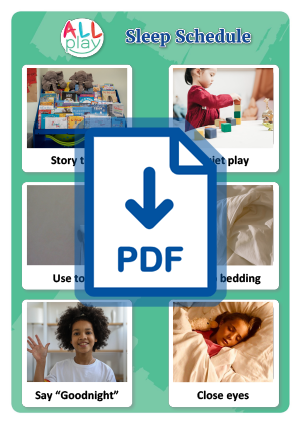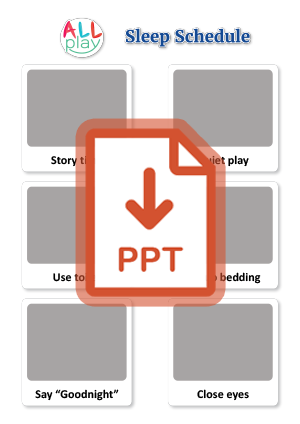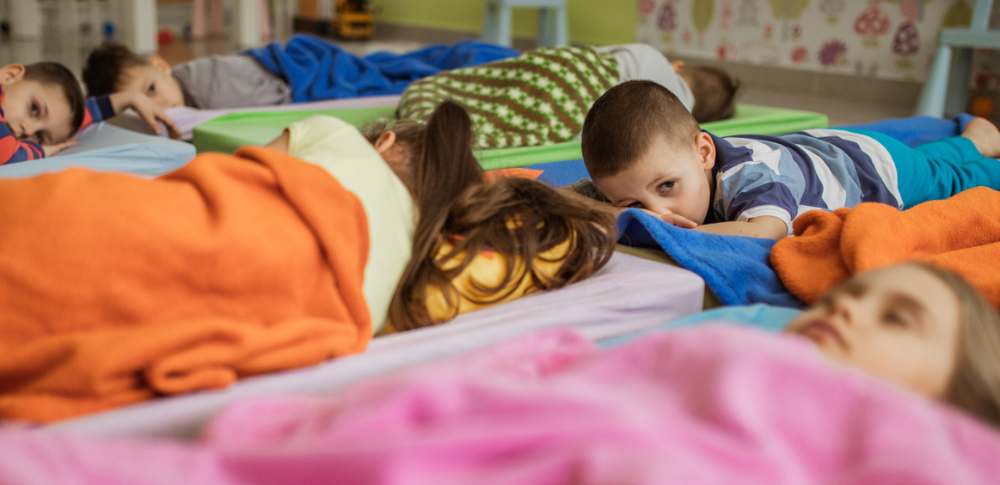Sleep In Early Childhood Education And Care Settings Allplay Learn

Sleep In Early Childhood Education And Care Settings Allplay Learn Access daily strategies for specific situations some children with disabilities or developmental challenges may find challenging in early childhood education and care settings. topics include: toilet training, incursions and excursions, sleep, preparing for safety drills, and tips on how caregivers can look after their physical, emotional and mental health and wellbeing. Free family resources by allplay learn to support the inclusion of children with disabilities and developmental challenges such as autism, adhd, intellectual disability and anxiety in early childhood education and care settings. you can access videos, social stories, emotion cards, home schedule, posters, handouts, and toolkits on character strengths, planning, emotions, communication.

Sleep In Early Childhood Education And Care Settings Allplay Learn Daytime sleep is an important feature of sleep patterning across early childhood and significant for children’s health, behavioral regulation, and learning. 1 the period from birth to 5 years is characterized by a normative transition in daytime sleep during which there is an evident shift from multiple bouts of daytime sleep through to consolidation of all sleep into a single night period. Dr. rachel moon, an expert on sids, presents the updated 2016 aap task force recommendations that relate to safe sleep practices in early childhood education programs. child care health consultants can explore this webinar to learn current practices to support safe sleep environments. learn about the research behind the recommendations and tips. The total number of hours a child sleeps per day decreases across the early years. current recommendations for children aged 3 5 years suggest that around 10 13 hours of sleep each day is typical. this is primarily made up of night time sleep, but for some children will also include a daytime nap. for children who do nap during this period, the. Background early childhood education and care (ecec) services have the potential to influence or disrupt sleep patterns given that ecec attendance coincides with the normative transition towards napping cessation. objective in light of the evidence that sleep patterns in early childhood are foundational to lifelong health, this study investigated parent–educator communication about children.

Successful Sleep Strategies In Child Care Careforkids Au The total number of hours a child sleeps per day decreases across the early years. current recommendations for children aged 3 5 years suggest that around 10 13 hours of sleep each day is typical. this is primarily made up of night time sleep, but for some children will also include a daytime nap. for children who do nap during this period, the. Background early childhood education and care (ecec) services have the potential to influence or disrupt sleep patterns given that ecec attendance coincides with the normative transition towards napping cessation. objective in light of the evidence that sleep patterns in early childhood are foundational to lifelong health, this study investigated parent–educator communication about children. Sleep health. meeting children’s sleep needs supports their learning, growth the quality and quantity of and development. sleep that a baby or toddler has can impact on their sleep plays an important role in the everyday lives of young ability to learn, regulate their. children, and influences their behaviour, interact with others. A compelling body of studies identifies the importance of sleep for children’s learning, behavioral regulation, and health. these studies have primarily focused on nighttime sleep or on total sleep duration. the independent contribution of daytime sleep, or napping, in childhood is an emerging research focus. daytime sleep is particularly pertinent to the context of early childhood education.

Standards For Healthy Eating Physical Activity Sedentary Behaviour And Sleep In Early Sleep health. meeting children’s sleep needs supports their learning, growth the quality and quantity of and development. sleep that a baby or toddler has can impact on their sleep plays an important role in the everyday lives of young ability to learn, regulate their. children, and influences their behaviour, interact with others. A compelling body of studies identifies the importance of sleep for children’s learning, behavioral regulation, and health. these studies have primarily focused on nighttime sleep or on total sleep duration. the independent contribution of daytime sleep, or napping, in childhood is an emerging research focus. daytime sleep is particularly pertinent to the context of early childhood education.

Comments are closed.